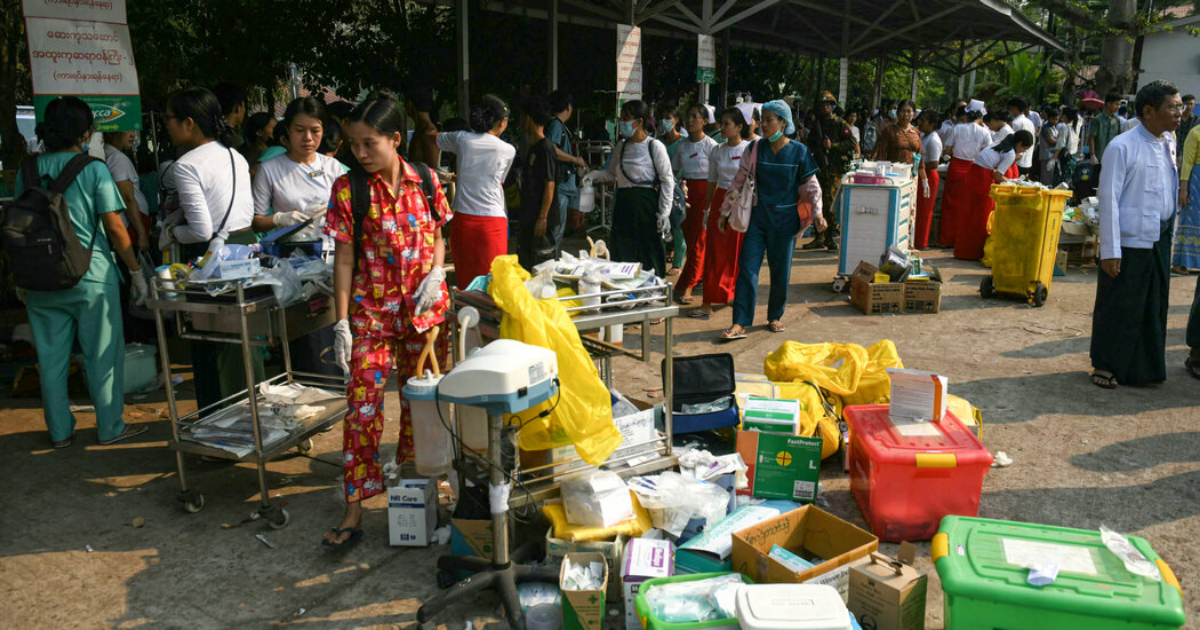After the 7.7-magnitude earthquake on Friday, the internet was filled with videos, images and social media posts documenting the damage in Thailand.
But across the border in Myanmar, where the devastating quake was centered, there has been a far murkier picture about the scale of the diaster.
Information from Myanmar has been harder to come by in part because of the country’s history of internet censorship. In recent years, the military has repeatedly shut off the internet and cut access to social media, digitally isolating the country from the rest of the world.
The blocks have been intended to thwart dissent and prop up the country’s military rulers. Freedom of the press has also been severely restricted. But in an emergency like the earthquake, where power outages and infrastructure damage can already hinder access to the internet, such restrictions can further limit what information is available and can potentially affect the delivery of aid.
Shortly after the quake, even the government struggled to stay online, as several official websites controlled by the junta were inaccessible.
Myanmar’s military took power in a coup in 2021, seizing control of the country’s telecommunications networks, allowing it to shut down internet access in certain areas and create communications blackouts, according to Access Now, a digital rights organization.
Despite widespread internet blocks, some areas have better connectivity than others. In regions where rebel groups have been fighting against the military, internet is particularly unreliable, with many using the satellite-based service Starlink to get online, said Joe Freeman, a Myanmar researcher at Amnesty International.
The quake struck central Myanmar on Friday around 12:50 p.m. local time, causing damage in cities as far away as Bangkok in neighboring Thailand. The quake hit near Mandalay, Myanmar’s second-largest city after Yangon, and a strong aftershock was recorded shortly thereafter.
Mr. Freeman said Myanmar’s internet blocks and censorship policies are surely having an effect on getting information about the extent of the disaster in the country.
“Compare the coverage of the earthquake in Thailand, where tremors and damage have been extensively reported, posted and documented, to Myanmar, where we still don’t have a clear picture of the extent of the damage and loss and may not for some time,” Mr. Freeman said.
The information black hole is a stark contrast to the reality of the country before the coup, when growing numbers of Facebook-addicted smartphone users posted huge amounts of memes, political debates and videos during previous crises, like the spread of Covid and protests against the military coup.
